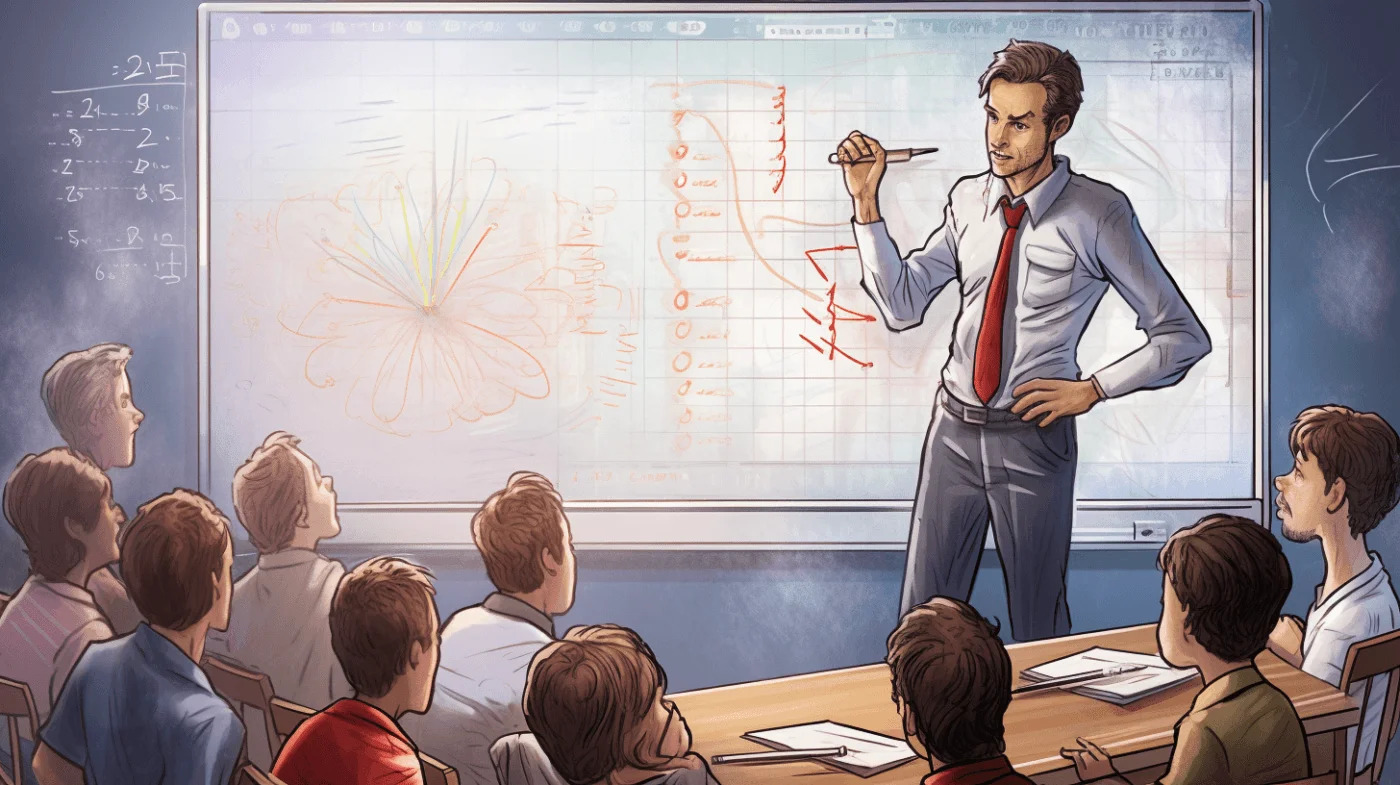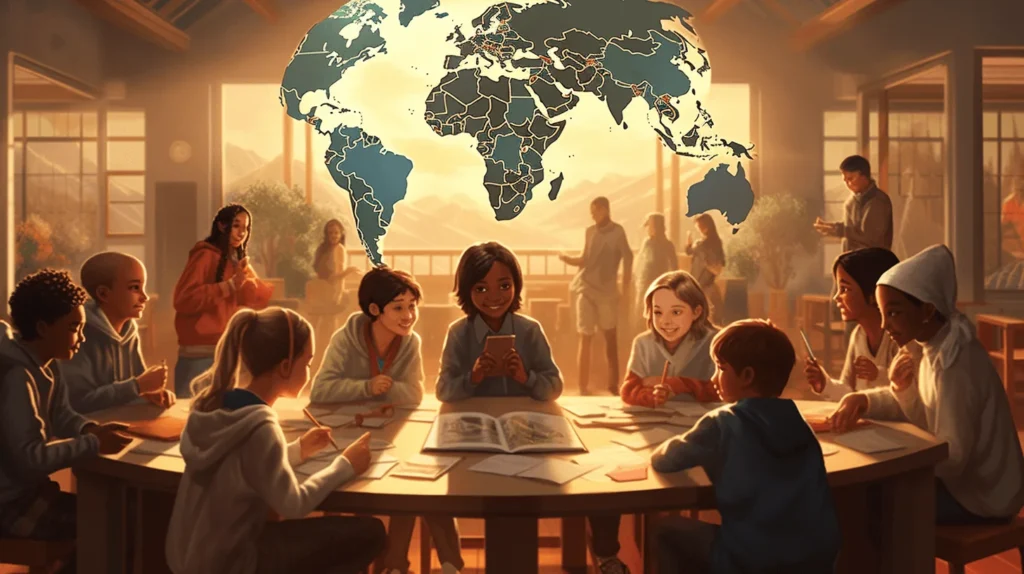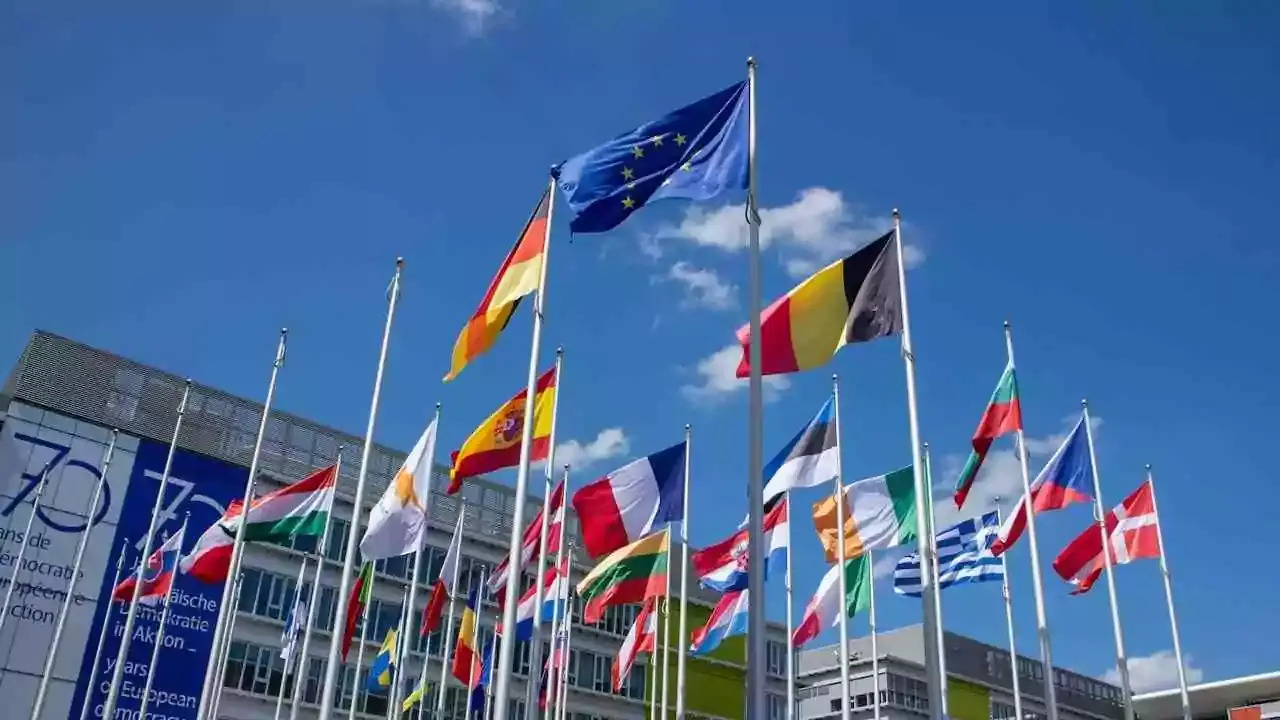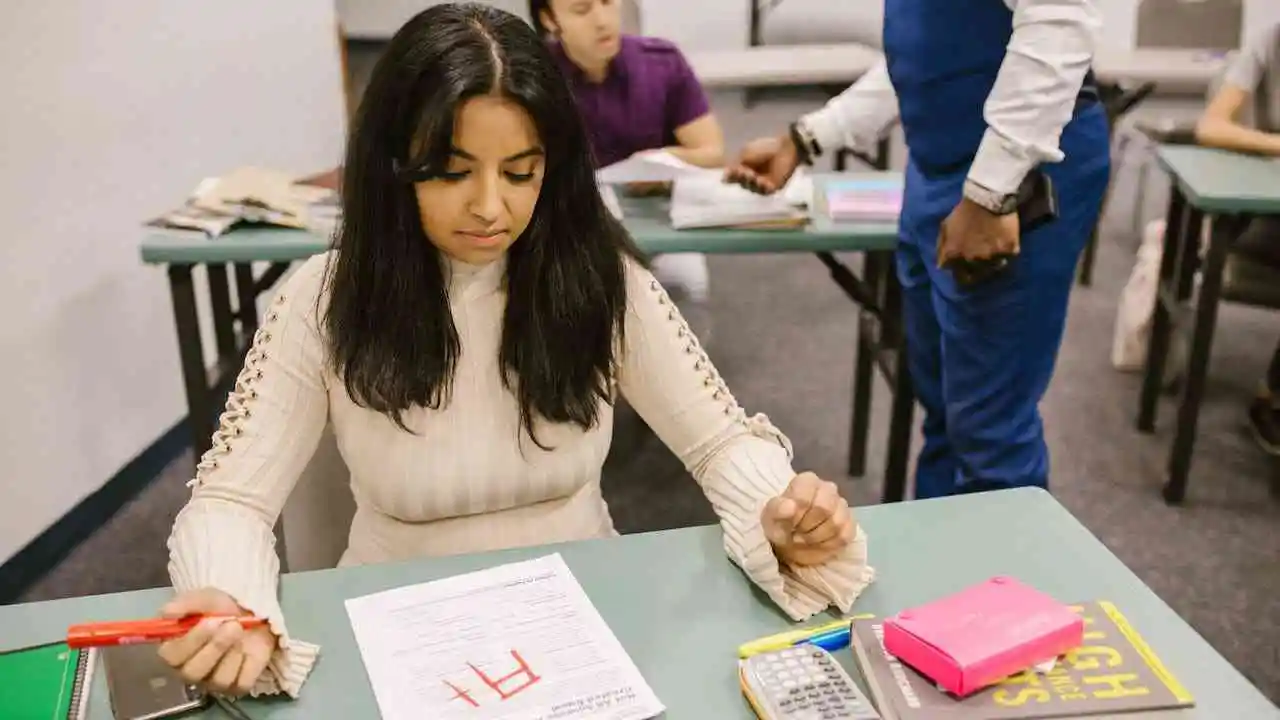Truth & Goodness
Will the European Union Endure? Repeating the Mistakes of History
14 May 2024

Education needs to be decisively modified. The key reasons are global changes in areas including the economy, social issues, climate and technological progress. It is high time to verify aims and goals and introduce an education model conducive to the development of 21st-century competencies. Both global projects carried out by organizations such as the OECD and ideas proposed by enthusiasts gathered in change-oriented think tanks serve this purpose.
School – or more broadly education – needs to change. An interesting concept in this field was developed by the Organization for Economic Cooperation and Development (OECD). For years, this body has been coordinating research, based on the standards it imposes, on the quality and effectiveness of education systems in particularly developed countries. Today, it proposes changes that, from the assumption, should be made at the grassroots and, taking into account individual conditions for work and development of schools, be intended to transform education in individual countries.
The world is undergoing a visible transformation. It is the result of the development of the economy, science and technology, as well as progressive globalization, climate changes and the aging of societies. It is also the effect of increased migration, urbanization and the introduction of the green economy. All of these factors force the need for significant modifications in education. For example, 65% of children starting their education today will work in professions that do not yet exist. For this reason, over the past 50 years, trends in the types of skills required of school graduates have radically changed. Today, so-called fusion skills, understood as a combination of creative, entrepreneurial and technical capabilities, are increasingly sought. To adapt to life in the modern world, it is necessary to develop competencies including:
Learning new competencies requires a reorganization of the learning process and a departure from standard solutions such as subject-class-evaluation in favor of search, experience and reflection.
We recommend: Redefining Education: Beyond the Classroom
For many years, key educational bodies have been wondering how to prepare school graduates to face challenges we cannot yet imagine, as well as to use technological achievements that have not yet been invented. Which resources should today’s school graduates be equipped with so that they can thrive in a world where it is necessary to understand and appreciate different perspectives or worldviews? How to organize a developmental environment where it is particularly important to cooperate with others, have respect for them and take responsibility for actions for sustainable development and collective well-being.
Discerning the urgent need to open a global discussion on these topics, the OECD launched the Future of Education and Skills 2030 project. It aims to identify key challenges and develop a common ground in teaching and learning. The expected result is the redesign of curricula by 2030 and the development of a conceptual framework for 21st-century learning.
Representatives of countries working on the joint Future of Education and Skills 2030 project have developed a policy document called the OECD Learning Compass 2030. It presents key assumptions covering the objectives and ways of organizing learning, that is, the vision and set of principles that will underlie education systems in the future. The very concept of “compass” was adopted to emphasize the need to learn by moving independently in the area of new content and experiences. The implementation of this idea is intended to help students know in which direction to go to use their potential and thus also contribute to the well-being of their communities.

The basic directions of development are competencies understood as a holistic set of resources covering knowledge, skills, attitudes and values. This does not mean a total giving up on school subjects. Students need basic knowledge as a language that facilitates learning about the principles of the functioning of the world in which they live. However, the focus on competence training means something more. Not only does it enable one to acquire the predisposition to take exam tests, but it facilitates effective decisions and actions in new situations, often emergencies.
For most of us, the future is a completely unknown world connected with uncertainty. School graduates prepared for life in the times yet to come should be practical agents of change, which means they should:
For this to happen, each student should be guided in his or her development by their educational compass. Its shape and operational principles will be conditioned by previously acquired knowledge, experience, inclinations to learn and family background. This means that the learning paths of peers can vary. The compass verifies individual decisions and does not impose a common understanding, standards or obligation to comply with the top-down adopted and applicable to everyone assumptions.
We recommend: Education for peace: How the “School of Dialogue” program is transforming schools and building a harmonious community
The Future of Education and Skills 2030 is a proposal for OECD member countries. For years, the PISA (Programme for International Student Assessment) research has been a key point of reference for measuring and assessing the quality of learning of students from developing countries. It is an international action, initiated in 1997, in which skills and knowledge that are important from the perspective of the challenges that the tested fifteen-year-olds will face in their adult lives have been analyzed. The starting point for such planned activity was the notion of “literacy” which refers to the “ability to apply knowledge and skills, analyze, argue and communicate effectively in the process of posing, solving and interpreting problems” in a variety of situations. Should the OECD Learning Compass 2030 and the Teaching Framework for 2030 become a form of competitive analysis to work for the quality of education? Well, fortunately not! The activities undertaken within PISA are focused on the assessment made in reference to external criteria with the usage of a test that aims to show “how well a student can do what is being tested.”
The OECD Learning Compass 2030 and the Teaching Framework for 2030 concern the learning process. They aim to answer questions about what competencies students need to have to shape a better future. Institutions that test students’ learning outcomes within PISA research focus on specific knowledge or skills that are important and can be reliably and solidly assessed.
The Teaching Framework for 2030 aims to take a holistic view of what students need to learn and it provides a map of the directions in which they should head toward. Moreover, they are supposed to inspire reflection on their curricula by comparing them with those of other countries. The Teaching Framework for 2030 and the global research parameters adopted within PISA are interrelated, but not identical. More importantly, they do not serve the same purpose.
The PISA studies compare the quality of the work effects of schools, teachers and students from different countries, while the Teaching Framework for 2030 presents a vision and set of principles that underlie the future and development of education systems. The application of the new solutions is expected to contribute, among other things, to demonstrating what knowledge, skills, attitudes and values students need to shape the future. They also show what conditions must be met for the competencies to be integrated into existing curricula instead of creating new subject areas.
We recommend: Inclusive Education: What Is It and Why Is It So Important?
School subjects, curricula, and classroom tests examining the level of knowledge and skills of students are the symptoms of education immersed in the 19th century. It is high time to try to move away from this type of practice in favor of developing the expected competencies of the 21st century in schools. One of the solutions is to take action for the interdisciplinarity of education. This assumption is closely related to the activities undertaken by the Holistic Think Tank to develop an Interdisciplinary School Subject (IDS), understood as a “reality-adapting system of guidelines for teaching all school subjects.”
The participants of the Future of Education and Skills 2030 project talk a lot about the need for flexibility in teaching and learning, understood as the ability to respond to the individual needs and capabilities of students. This means that it is necessary to look for solutions based on cross-curricular competencies that strengthen problem-solving skills, creativity and curiosity.
The idea behind IDS is to bring about a significant change in the way of teaching by introducing a holistic approach that would, similarly to the assumptions of the OECD Future of Education and Skills 2030 project, shape and strengthen the humanistic values of students during the classes. This is important. The organization of learning and the need for a decisive modification of the functioning of schools in the world seems to be a foregone conclusion. All we have to do is to wait. Or maybe not? Maybe it is not worth waiting for? As Justyna Pokojska wrote in an article devoted to IDS: “At the core of the Interdisciplinary School Subject lies the assumption that every student is an essential part of the teaching process. Everyone plays an important role in it, according to their predispositions and interests. Learning is an ENCOUNTER that is the essence of the educational process, understood as discovering the truth and learning about the world together.” It is not worth hiding the real world and the possibilities that a generation that resolutely pursues to reach adulthood has. It is worth taking care of a meaningful dimension of learning for our pupils today.
Translation: Marcin Brański

Education
13 May 2024


Zmień tryb na ciemny